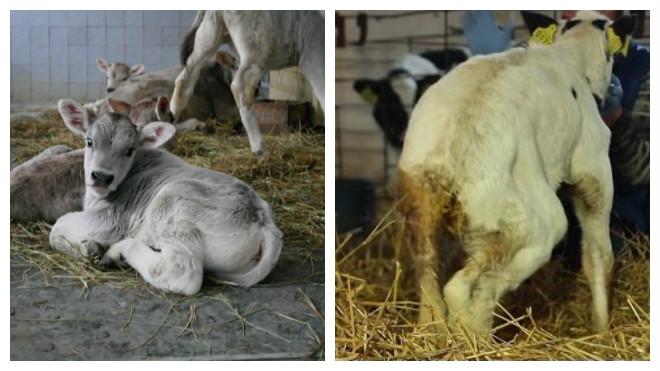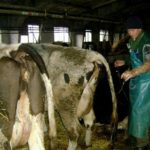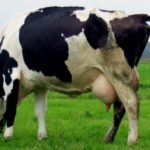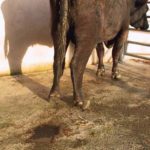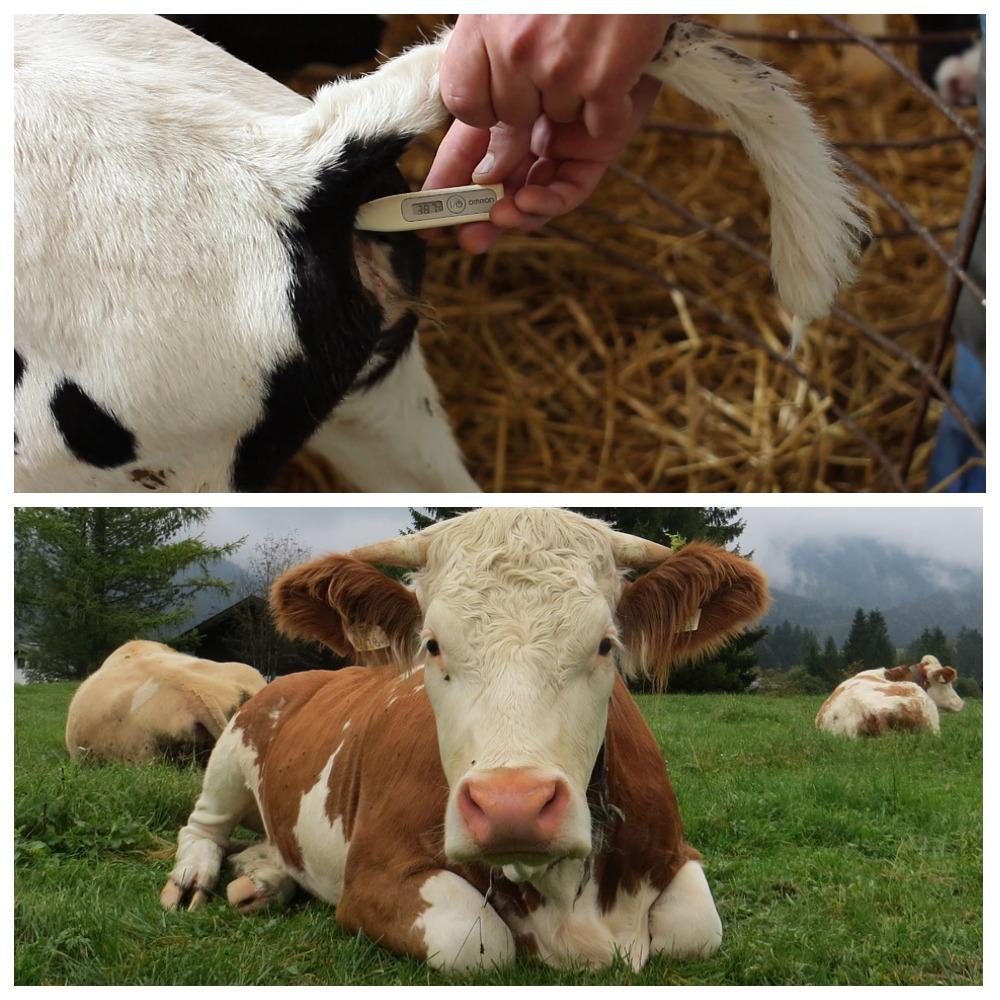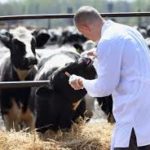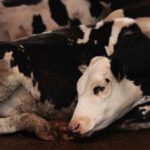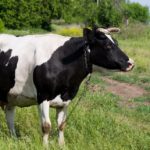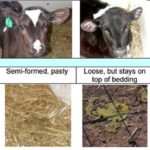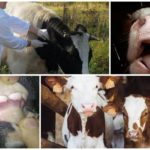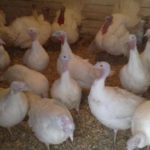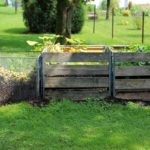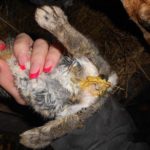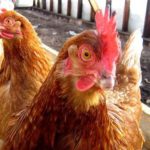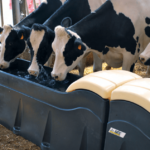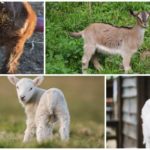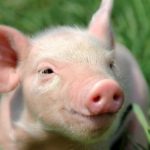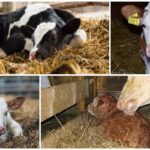Diarrhea in cattle is a common symptom indicating a pathology of the digestive tract. There is no one disease of which it is a symptom. To begin treatment, you need to determine the causes of diarrhea in cows, know how to stop it, what medications and folk remedies to use, how to prevent the development of diarrhea in cows, and what dangers diarrhea in cows can pose.
Causes and signs of diarrhea
Diarrhea is a characteristic sign of disturbances in the functionality of the intestines. Changes concern the frequency of bowel movements, which increases sharply, their color and consistency (loose stools).Often the cause is inflammatory processes in the intestines. They arise due to feeding cows with low-quality feed, changing the diet, abruptly introducing new products, or drinking cold water. In the fall, cows may develop diarrhea due to them eating wet, frozen grass, which causes fermentation to develop in the intestines.
Animals can be poisoned by poisonous grasses in the pasture, they may be allergic to feed and medications, which causes severe diarrhea. The cause of diarrhea can be a lack of proteins, mineral components and vitamins, and fiber. The disorder can be caused by bacteria, parasites, protozoa, and viruses. In adult cows, diarrhea can also develop after calving.
In calves - due to colostrum or milk of low quality or, conversely, too fatty, due to excess feeding. The disorder in young animals can develop due to unsanitary living conditions, overcrowding, and poor ventilation in the room. And also due to stress during transportation and vaccination.
With diarrhea, not only the characteristics of bowel movements change, the disorder has a strong impact on the condition of the entire body. The animal refuses food or eats poorly, weakness develops, and the temperature rises.
A typical consequence of diarrhea is dehydration due to loss of fluid, which can kill the cow or calf. Dehydration can be identified by dry mucous membranes and skin, insufficient urination, slow heart rate, and sunken eyes.
Diagnostic methods
Diagnosing diarrhea in cows is simple: if there are loose stools, frequent bowel movements, changes in the color and composition of feces, then measures need to be taken. However, before starting treatment, the cause must be established.
The diagnosis must be made by a veterinarian.In order for him to correctly identify the disease, he must have information about changes in the animal’s behavior, temperature, and the nature of bowel movements. When did the diarrhea start, what did the animal eat, was there vomiting or not, when was the last time deworming was carried out. Based on the information and clinical picture, it will be easier to make a diagnosis and select treatment.
How to stop diarrhea in cows
To treat diarrhea, cows are given drugs with different effects. You can try to cure it with folk remedies. But they can only help in mild cases and if the disorder has just begun. In severe cases, you should not count on their effect.
Medicines
During the treatment period, the cow is put on a diet. The animal is kept without food for 1-2 days, water is given ad libitum. After a starvation diet, the cow is gradually fed good hay, some root vegetables and concentrates. Treatment of diarrhea in cattle: the animal is given absorbent drugs to remove toxins and a lot of water, glycine, and Apomorphine is injected. To restore the water balance, saline solution, glucose, and Ringer's solution are administered. If the cow is weakened, injections are given several times a day (total amount - 1 liter).
Injections of caffeine and sulfocamphocaine are given to maintain the cardiovascular system (the solution is prepared according to the instructions). If the diarrhea is caused by bacteria, the cow is given antibiotics or sulfonamides. Antibiotic and novocaine - if there is blood in the stool. To relieve pain, the animal is given “No-shpu” and “Diprofen”, “Analgin”. After using antibiotics, it is necessary to give probiotics and enzymes to restore intestinal microflora, disturbed by diarrhea and medications, and prevent the development of fermentation processes.Preparations: “Sporothermin”, “GastroVet”, “Vetom4”, “Multibacterin”, “Acidophilin”.
Diarrhea in livestock should be treated with sorbents, rehydrates, antibiotics, analgesics and probiotics. All medications, doses, regimen and duration of therapy must be determined by a veterinarian.
Folk remedies
At home, the animal can be given well-known astringents: decoctions of oak bark, flax, oats, rice. Infusions can be made from St. John's wort, burnet, bird cherry fruits, and horse sorrel.
To remove toxins from the body, the animal is given activated carbon or an infusion of black bread, a decoction of rose hips and plantain.
Folk remedies can be used in combination, together with synthetic drugs. Calves can be given the same decoctions, chamomile decoction, warm salted water. If they eat milk, it is removed; if they have diarrhea, it is not digested and contributes to the development of pathogenic bacteria in the intestines. After the cessation of the disorder, milk is alternated with rice or oatmeal broth.
Is there any danger?
The danger for adult cows and calves is the loss of water (during diarrhea, it is removed faster than through the urinary organs) and the mass of microelements, and severe intoxication. With intense diarrhea, the loss can be critical, and the animal will die (with severe loss - within 2 days). In this case, only urgent drug therapy will help.
Prevention
To prevent cows from having diarrhea, all provoking factors must be eliminated.Create a complete, balanced diet, the products must be fresh, the grass must be free of poisonous plants, root vegetables and hay must be free of mold and rot. Low-quality hay and straw should not be placed on the bedding, because animals eat them too. Do not graze your flock in areas where poisonous grasses are found. Make sure that animals do not overeat.
Remove bedding from the stall as soon as it becomes slightly dirty and replace it with clean straw. Keep the water clean and heat cold water (especially for feeding calves). Do not graze cows on frozen grass. Disinfect the barn and equipment as often as possible. Carry out routine vaccinations and deworming on time. Keep sick individuals separate from healthy ones until recovery.
Diarrhea in cows develops for many reasons and quite often. It can be a consequence of poor nutrition, improper maintenance, stress, poisoning, or infections. If diarrhea is repeated and continues for a long time, treatment cannot be avoided. Traditional methods can help in the initial stage of the disorder; mainly, medications are used for treatment.

